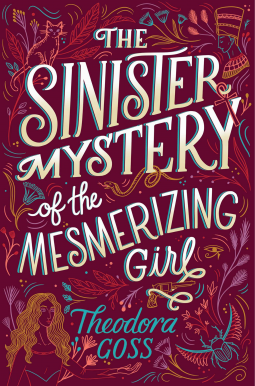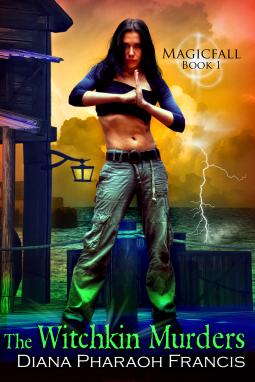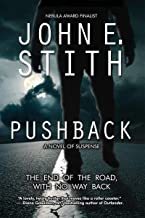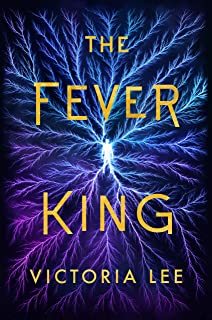Deborah J. Ross's Blog, page 54
February 21, 2020
Short Book Reviews: The League of Extraordinary Gentlewomen Rides Again
 The Sinister Mystery of the Mesmerizing Girl, by Theodora Goss (Saga Press)
The Sinister Mystery of the Mesmerizing Girl, by Theodora Goss (Saga Press) The “league of extraordinary gentlewomen” (aka, The Athena Club) continues as, fresh from their last adventure, our stalwart heroines must thwart a dastardly plot to mesmerize the world and place an imposter on Queen Victoria’s throne. Mary Jekyll (yes, that daughter), Diana Hyde (her sister), Beatrice Rappaccini (“The Poisonous Girl”), Catherine Moreau (panther-turned-human), and Justine Frankenstein (who, despite her enormous size, is a gentle vegetarian philosopher) are hot on the chase to rescue not only the entire British Empire, but their friend, Sherlock Holmes. With occasional homage references to H. Rider Haggard, Bram Stoker, Robert Louis Stevenson, Nathaniel Hawthorne, and Mary Shelley. Hugely entertaining, especially the digressions in which the various characters kibbutz about Catherine’s writing narrative.

Published on February 21, 2020 01:00
February 19, 2020
Today's Moment of Art
Published on February 19, 2020 01:00
February 17, 2020
Auntie Deborah Advises on Writing Craft
 Auntie Deborah is back at her advice desk...
Auntie Deborah is back at her advice desk...I’ve been told that as a new writer I should write what I know. How can I apply this to writing a historical novel?Auntie Deborah: First of all, that old saw about writing (only) what you know should be consigned to the dustbin of bad literary advice. If we all followed it, all fiction would be trite and unendingly boring. We’d write about writers staring at blank screens, unable to summon the enthusiasm to describe their morning cup of coffee. All our characters would be exactly like us. There would be no science fiction, no fantasy, no romance, no mystery, no historical fiction, no sweeping love stories across two continents…Better, write what you are passionate about.But do your research. If your main character is disabled, talk to disabled folks and read what they have to say about ableism. If your story is set in Regency England, head for the library (or better yet, the nearest university) and delve into the history, culture, social mores, language, everything you can learn to bring your story to life.
How can I create an amoral, despicable, sociopathic villain, without making him too cartoonish?Auntie Deborah: Why would you want to do that when complex characters who do bad things for good reasons (or good things for bad reasons) are so much more interesting?Look, no one worth reading about gets up in the morning and goes “Evil! Evil! Rah! Rah! Rah!” The best villains have heroic, majestic qualities with tragic flaws. They’re a whole lot harder to write well than cardboard characters, but if you put in the work, they’ll steal the show.
What can you do if your characters won’t do you want them to?Auntie Deborah: The short (but brutal) answer is that your characters behave the way you created them. Their histories, personalities, goals, and motivations are all part of that creation. So if you — like so many of us! — find your characters resisting the demands of the plot or going off on their own adventures, it’s time to take a step back and delve deeper into what’s on the page and what’s in your creative imagination that isn’t explicit but nonetheless exerts a powerful influence over the character’s behavior.Looking at it another way, stories can be driven by plot (a series of actions where one leads inevitably to the next) or by character (the motivations and inner conflicts dictate the character’s goals and actions). (Other possibilities include ideas — mysteries, for example — or environments — where the world itself is the focus. But your problem really pertains to the competing demands of plot versus character.)If you’ve conceived of the story as a plotline first and foremost, of course you want interesting characters but you also want them to follow the script. One way to do this is to work backward to discover what kind of person would make those choices and have what it takes to overcome those obstacles. You cannot simply plug any character into any role and have it work (unless your characters are all “cardboard.”) “Misbehavior” = mismatched personalities and roles.If, on the other hand, you have a compelling, fascinating character with an agenda of her own that doesn’t fit your plotline, you can always chuck the script and see where the story goes when driven by this character.
But I have no idea what happens in the middle of my plot. Help!Auntie Deborah: The key is the way you phrased the question as “what happens.” You’re thinking of a plot as a sequence of actions. Think instead of an avalanche, how it starts small and gathers power. If you’ve established your dramatic tension correctly, each action arises naturally and inevitably from what has come before (that’s called “profluence”), only with greater danger and higher stakes. The “middle” is a time of reversals, when things go increasingly wrong. So the answer lies in how you’ve set up your characters goals, weaknesses and strengths — and conflicts — and what imperils them. The latter doesn’t have to be the Big Bad; a hook can be a smaller threat so long as it kicks off the action and directs the character’s choices in the right direction.
Is it better to "just write anything" when I’m in a writing funk?Auntie Deborah: Absolutely! Just keep the pen (or the fingers on a keyboard) moving! Don’t censor, don’t go back and edit, and don’t stop. You can write about anything — the funk you’re in, all the things you know about potatoes, the antics of your dog — just keep churning out one word after another. While you do this, watch your mind. Observe when words start to flow and catch fire. Once you’ve settled you can decide whether to transition to a day of work or to thank your mind (and your fingers) and begin again, funk or no.
How do you create dialog that isn’t just “he said, she said”?Auntie Deborah: This is an excellent question about writing craft. Some thoughts, in no particular order:Not every line of dialog needs a tag (“he said”). If there are only two people, or if it is otherwise obvious who is speaking, omit the tag. But do use it from time to time to keep the reader oriented.“He said” is invisible. Its repeated use bothers the author a whole lot more than the reader. In general, it’s not a good idea to get “creative” with alternatives (“he ejaculated” used to be common usage), although “asked,” “replied,” and so forth are fairly innocuous. It’s really, really not a good idea to use substitutes that are physically impossible. Ex: “Never,” he glowered. Or have a character hissing words without ssses.My favorite method is to use a bit of action or description of expression instead of the tag. Ex: “Never!’ His brows drew together in a half-scowl. “It’s impossible.” Ex: She lifted her fan, covering the lower part of her face. “My dear sir, you flatter me.”Dialog can do wonderful things: advance plot, reveal character, increase/decrease tension, convey information. But narrative can do these things, too. It’s fine to summarize a conversation, rather than delivering it, blow by boring blow. If your dialog is bogging down, consider another literary tool.

Published on February 17, 2020 01:00
February 14, 2020
Short Book Reviews: Deadly Secrets in a Newly Magical World

The Witchkin Murders (Magicfall, Book 1) by Diana Pharaoh Francis (BelleBooks)
Magic, long underground, has exploded from its confines, leaving the world and its human inhabitants transformed by Magicfall and the subsequent Magic Wars. Most of those transformed by magic – “witchkin,” including witches, dryads, and many even more mysterious creatures – are shunned by humans. When Portland, Oregon, police detective Kayla realized she was one such, she abruptly left the force rather than be discovered. But when she stumbles upon the ritualistic mass murder of witchkin, she calls her old partner, Ray, and gets dragged into the investigation. Someone is slaughtering these marginalized people with a bigger, darker, more horrendous goal. It’s up to Kayla and Ray to overcome their personal hurt, open their hearts, reveal their secrets, and work together to solve the mystery.
The mystery and the angst-ridden characters drew me right into the story, and the pacing kept me turning the pages. The book’s major flaw – for me, anyway, as for other readers it might be a feature, not a bug – was the Romance-style pacing of the unfolding relationship. I get impatient when lovers keep secrets to protect the other person, and especially when the estrangement and misunderstandings that should have been cleared up by a single honest conversation drag on for chapter after chapter. This romantic/erotic tension appeals to many readers, but I found it overly long drawn out in comparison to the fascinating world and its tantalizing mysteries.

Published on February 14, 2020 01:00
February 12, 2020
Today's Moment of Art
Published on February 12, 2020 01:00
February 10, 2020
When Writing Friends Aren't: Sabotage and Self-Image
 Elsewhere on the net, a talented new writer made a comment about the damaging effects of another person's behavior. We can encounter destructive relationships in every area of our lives, but when it comes to our creativity, they can be particularly nasty.
Elsewhere on the net, a talented new writer made a comment about the damaging effects of another person's behavior. We can encounter destructive relationships in every area of our lives, but when it comes to our creativity, they can be particularly nasty. Some people write in isolation. Either they aren't naturally sociable or they find that critical feedback simply isn't helpful. Most of us, however, create some type of support system at some stage of our careers. Often it's early on, when we're struggling to learn the craft. We may find a face-to-face group or an online workshop or other network of fellow novices. The internet provides a wealth of opportunities to meet such people, as do conventions. (When I was starting out, there was a wonderful workshop-by-mail run by Kathleen Dalton-Woodbury; I'm still friends with some of the writers I met by exchanging letters and written critiques.)
Most of the time, beginning writers are honestly trying to help one another. We may make mistakes as we learn how to give useful critical feedback or make idiotic suggestions about marketing, but the basic relationship is one of good will and support. Success, however small the sale, becomes an occasion for celebration. When one member improves, we all feel encouraged.
Trust is a crucial element in such groups. We work hard to learn to accept criticism, to not be defensive, to take time to think through the comments. While this vulnerability makes us more teachable, it also leaves us open to manipulation and abuse.
Sadly, sometimes the people we thought were our friends and supporters, our colleagues and conspirators in the adventure of creating and publishing stories, turn out to be our most insidious adversaries. Sometimes, the alarm comes in the form of a sinking feeling, a sense that verges toward futility, after a discussion with a particular person. Other times, we realize that once again, we have been lured away from time in which we intended to work. Often we have no idea how that happened. We want to think well of our friends; we believe their words even when their actions speak differently.
The whole issue of jealousy and sabotage on the part of those we have trusted with our creative process, those we have relied on to be both honest and tender with us, is complex and troubling. I can't do justice to all its aspect here. The first step toward healthier boundaries is realizing what is happening and that we are not alone. It's happened to most of us.
I don't mean to say that people join writer's workshops with the intention of eroding the self-confidence, not to mention the craft skills, of the other members. I do mean that people are not always aware of their own feelings and motivations. A person may truly believe he or she means nothing but the best for another writer, all the while subtly and unconsciously communicating something very different.
A writing friendship can begin as mutual support but not fare well when one writer's career takes off and the other one's doesn't. We're not supposed to feel jealous of another writer, especially a friend. But without self-awareness, it's easy to slide into resentment. ("It's not fair that he got published and I didn't when my story is just as good.")
Sometimes, resentment comes out in statements that undermine trust in the other writer's judgment and work, pressure to go against one's natural strengths, for example, to change genres, to aim for unreasonable markets ("Why are you wasting your time writing sword and sorcery when you should be writing steampunk?")
Occasionally, envy will prompt a writer to try to manage the other's career, even to act as a sort of agent. Gossip is a common way of venting frustration, damaging both reputations and trust. ("She only got that story published because she slept with the editor.")
For me, it's important to find people I can trust, both within the field and outside it. Sometimes I need a disinterested listener, one I know will hold whatever I say in confidence, so I can work out what my guts are telling me and how to deal with the situation. This helps me to recognize my own "warning signs" and develop a vocabulary of responses. I also need regular time with fellow writers, not only to chew over specific writing problems but for general communication-of-enthusiasm and mutual cheering-on. When I do this regularly, I am less apt to be drawn into those relationships that are less healthy for me as a person and as a writer.
This essay (and more!) can be found in my collection: Ink Dance: Essays on the Writing Life.

Published on February 10, 2020 01:00
February 7, 2020
Short Book Reviews: A Psychological Thriller from SF Master John E. Stith
 Pushback, by John E. Stith (ReAnimus Press)
Pushback, by John E. Stith (ReAnimus Press)I encountered the work of John E. Stith through his imaginative hard science fiction novels, Redshift Rendezvous and Manhattan Transfer(among others, but these were my gateway). I was curious to see what he would do with mainstream thriller material, and I was richly rewarded. Stith is not only thoroughly skillful in handling character, plot, and descriptive narrative, but in this book, he weaves together a dramatic, tension-filled plot with the main character’s struggles with PTSD. In fact, rarely have I seen a protagonist as functional yet scarred, and PTSD and the techniques for managing it so accurately depicted.
Dave Barlow has made a remarkable recovery from childhood trauma. He’s a successful investment adviser, and happy in a new romance after the death of his fiancée. Things start to go wrong in bizarre, inexplicable ways when he and his girlfriend show up for his high school reunion and no one there has heard of him. Soon it becomes apparent that someone is trying to systematically destroy every aspect of his life – his relationship, his career, his home, his assets . . . and then his very life. The most likely suspects include anyone outraged that he has found love again, like his dead fiancée’s wealthy, reclusive father.
Stith shapes the tension of this thriller with consummate skill, pushing each new threat ever higher. I especially admired how he used Dave’s inner turmoil and still-unhealed wounds to intensify the escalation of pressure. The dramatic story is extremely well handled, but most of all, it’s a compassionate, humane tale of the resourcefulness of a deeply damaged, yet sympathetic, courageous, loving person. Ultimately, it’s as much a story of hope as a page-turner thriller.

Published on February 07, 2020 01:00
February 5, 2020
Today's Moment of Art
Published on February 05, 2020 01:00
February 3, 2020
New Story on Curious Fictions: Sing to Me of Love and Shadows
Curious Fictions: Sing to Me of Love and Shadows

In this medieval murder mystery, a chanteuse traces the history of opera to solve the crime.A snippet:On a honey-scented spring morning, the young widow Solange sat spinning the wool from her own sheep and patiently repeating the melody of her newest song while Gaétan the minstrel struggled to set chords to it. The sun cast a narrow strip of shadow from her house, one of a half-circle that made up the tiny village. A breeze carried the mingled smells of hot earth, leeks, and thyme. A short distance beyond lay the manor house of Val-Joli, whose ancient, battered stones had been pried from the last remnants of the Roman road.Blowing out his breath, Gaétan set the lute across his knees and stretched his fingers. He was only a few years younger than Solange and almost as homely.“Don't give up,” Solange said, tucking a tendril of russet hair under her linen coif. “You sing so well.”“Yes, I can sing. But nobody wants to hear my chansons de geste any more. They're bored with tales of high valor; today it's all love and ladies' favors, and I'm no good at that.” He sighed again and stroked the feather he used to pluck the paired strings.“Maman sings pretty songs,” said Jeannette, Solange's stepdaughter, as she wound the spun thread on a frame. Although she was twelve, she still wore an outgrown child's smock.A smile curved the edges of Solange's mouth. She'd started making songs when she was a new widow. Some said Jeannette ought to have died of the same fever, but whether it was by the Virgin's blessing or some other power, the child had lived.The minstrel picked up his lute again. Solange began humming and gradually a melody unfolded.
To read the rest, follow the link above. Better yet, subscribe to me.


In this medieval murder mystery, a chanteuse traces the history of opera to solve the crime.A snippet:On a honey-scented spring morning, the young widow Solange sat spinning the wool from her own sheep and patiently repeating the melody of her newest song while Gaétan the minstrel struggled to set chords to it. The sun cast a narrow strip of shadow from her house, one of a half-circle that made up the tiny village. A breeze carried the mingled smells of hot earth, leeks, and thyme. A short distance beyond lay the manor house of Val-Joli, whose ancient, battered stones had been pried from the last remnants of the Roman road.Blowing out his breath, Gaétan set the lute across his knees and stretched his fingers. He was only a few years younger than Solange and almost as homely.“Don't give up,” Solange said, tucking a tendril of russet hair under her linen coif. “You sing so well.”“Yes, I can sing. But nobody wants to hear my chansons de geste any more. They're bored with tales of high valor; today it's all love and ladies' favors, and I'm no good at that.” He sighed again and stroked the feather he used to pluck the paired strings.“Maman sings pretty songs,” said Jeannette, Solange's stepdaughter, as she wound the spun thread on a frame. Although she was twelve, she still wore an outgrown child's smock.A smile curved the edges of Solange's mouth. She'd started making songs when she was a new widow. Some said Jeannette ought to have died of the same fever, but whether it was by the Virgin's blessing or some other power, the child had lived.The minstrel picked up his lute again. Solange began humming and gradually a melody unfolded.
“A sky so pure,” she sang, “a sun so bright.Love brings hope to darkest night.A man of feathers longs for his promised bride,A golden pipe moves the hardest heart to stone,Through fire and water—”“Hark!” Gaétan rose to his feet. “There, on the north road!”
To read the rest, follow the link above. Better yet, subscribe to me.

Published on February 03, 2020 01:00
January 31, 2020
Short Book Reviews: A Plague of Magic
 The Fever King, by Victoria Lee (Skyscape)
The Fever King, by Victoria Lee (Skyscape)I loved the premise of this Young Adult fantasy thriller: a plague has swept the former United States, in the form of a magic-carrying virus. Most who are stricken die, but those few survivors now possess magic. Refugees seeking virus-free zones add to the social upheaval. One man, Calix Lehrer, an immensely powerful magic wielder, has survived from the beginning, and now rules the nation of Carolinia from behind the throne.
The story follows refugee Noam Álvaro through his infection with the virus, his recovery, his new magical powers, and his recruitment into a elite corps of young magicians. As such, he is lifted from the refugee slums into a life of luxury, attending private high school and one-on-one tutoring with the great Calix Lehrer.
This part of the story, with echoes of Harry Potter but also Noam’s loyalty to the memory of his father and the refugees who were once his own people, drew me into the world. Slowly Noam makes friends, including the charismatically brilliant, beautiful boy, Dana, for whom Noam develops a passionate crush. The burgeoning attraction between the two was handled with sensitivity and forthrightness, as was Dana’s anguish about the secrets he is forced to keep.
As the story progressed, however, it seemed to lose the moral compass that was so much a part of the earlier part. Often fictional characters may seem to be either good or bad and then turn out to be the opposite or a complex blend. That’s true in this book as well. However, certain actions remain in one category or the other, especially for younger readers. Among them are a protagonist committing deliberate murder and the sexual exploitation of a young person by an older, far more powerful person. I don’t mean that these things cannot appear in YA literature, but that they must have appropriate context and consequences. They are not, and must not be, morally neutral. Perhaps other readers will feel differently about how these issues were depicted, but I found myself with the equivalent of an ethical hangover after finishing what was otherwise an engrossing tale.

Published on January 31, 2020 01:00









